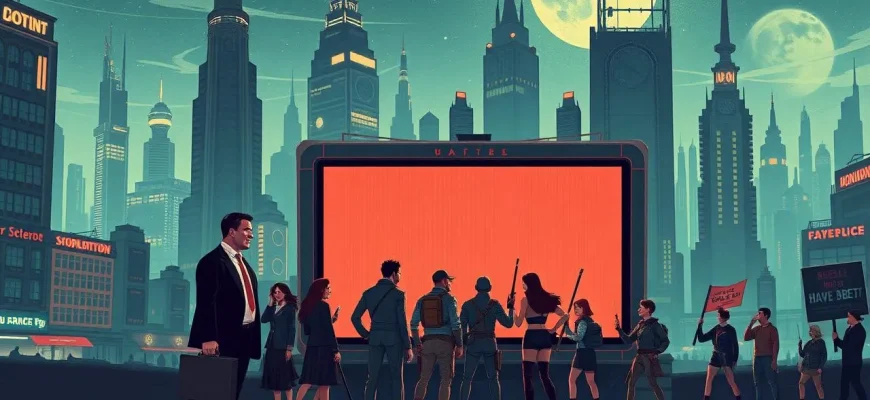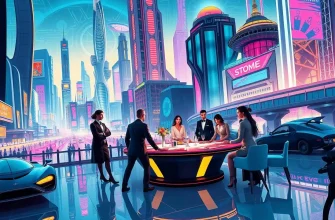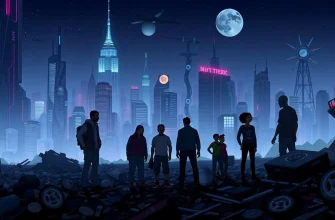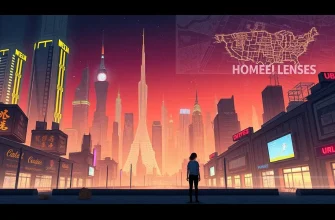In a world where the divide between the haves and have-nots seems to grow ever wider, science fiction has long been a mirror reflecting our societal fears and hopes. This curated list of 10 sci-fi films delves into the theme of class struggle, offering not just entertainment but a profound commentary on the human condition. From dystopian futures to alien worlds, these films challenge us to think about inequality, power dynamics, and the potential for change. Whether you're a cinephile or just someone interested in social issues, this collection promises to be both enlightening and engaging.
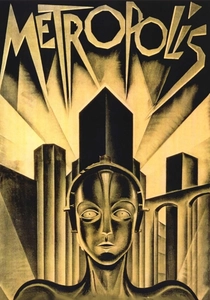
Metropolis (1927)
Description: This silent film classic is one of the earliest examples of science fiction cinema, depicting a futuristic city where the workers toil underground while the elite enjoy a life of luxury above, symbolizing class division.
Fact: Fritz Lang's film was influenced by the social unrest and the rise of communism in the 1920s, and it was one of the most expensive films of its time.
 Watch Now
Watch Now
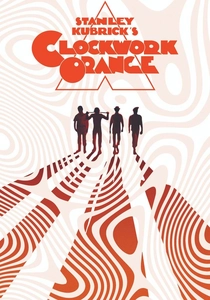
A Clockwork Orange (1971)
Description: Stanley Kubrick's adaptation of Anthony Burgess's novel explores themes of free will, violence, and societal control, with class struggle evident in the protagonist's journey from a delinquent to a victim of state control.
Fact: The film was withdrawn from UK cinemas by Kubrick himself due to copycat violence, and it was not re-released until after his death.
 Watch Now
Watch Now

Gattaca (1997)
Description: In a future where genetic engineering determines one's social status, this film examines the struggle of a naturally conceived individual against a genetically superior society, highlighting issues of class and discrimination.
Fact: The film's title is a combination of the letters from the four DNA nitrogenous bases: guanine, adenine, thymine, and cytosine.
 Watch Now
Watch Now

The Matrix (1999)
Description: While not overtly about class struggle, the film's themes of control, freedom, and the illusion of reality can be interpreted as a metaphor for class division, where the majority are unknowingly enslaved by a system designed to benefit the few.
Fact: The Wachowskis were influenced by various philosophical and religious texts, including Plato's Allegory of the Cave.
 Watch Now
Watch Now

Equilibrium (2002)
Description: In a totalitarian state where emotions are outlawed to prevent war, the film subtly explores class struggle through the enforcement of conformity and the suppression of individuality, which inherently affects the lower classes more.
Fact: The film's director, Kurt Wimmer, also wrote the screenplay, which was influenced by works like "Fahrenheit 451" and "
 Watch Now
Watch Now
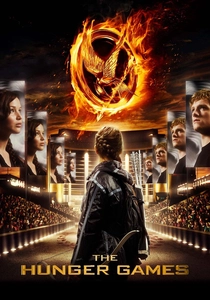
The Hunger Games (2012)
Description: In a dystopian future, the Capitol uses the Hunger Games to control and punish the districts, showcasing the extreme class divide. The story follows Katniss Everdeen, who becomes a symbol of resistance against the oppressive regime.
Fact: The film's setting was inspired by the Roman gladiatorial games and the reality TV show "Survivor."
 Watch Now
Watch Now

Elysium (2013)
Description: In a future where the wealthy live on a luxurious space station called Elysium, while the rest of humanity suffers on an overpopulated, ruined Earth, this film explores themes of class division, healthcare, and immigration. It's a visually stunning allegory for our current global issues.
Fact: Director Neill Blomkamp was inspired by the stark contrast between Johannesburg's rich and poor neighborhoods for this film.
 Watch Now
Watch Now
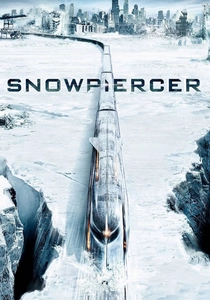
Snowpiercer (2013)
Description: Set in a future where the Earth has frozen over, humanity's survivors live on a perpetually moving train divided by class. This film brilliantly portrays the stark contrast between the impoverished tail section and the luxurious front, highlighting the struggle for equality and the uprising of the oppressed.
Fact: The film was adapted from the French graphic novel "Le Transperceneige" and features a cameo by Tilda Swinton as a bizarre, authoritarian minister.
 Watch Now
Watch Now

Brazil (1985)
Description: This surreal, darkly comedic film depicts a bureaucratic, dystopian society where the lower classes are oppressed by an inefficient and oppressive system. It's a critique of consumerism and the dehumanization of the working class.
Fact: Terry Gilliam, the director, had numerous conflicts with Universal Studios over the film's length and content, leading to several edits and versions.
 30 Days Free
30 Days Free
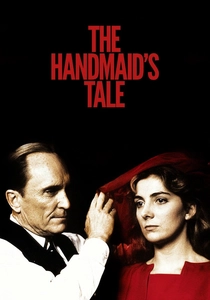
The Handmaid's Tale (1990)
Description: Based on Margaret Atwood's novel, this film portrays a theocratic society where fertile women are enslaved for breeding, showcasing extreme class divisions based on gender and fertility.
Fact: The film was released before the TV series, which later became more popular and closely followed the book.
 30 Days Free
30 Days Free

